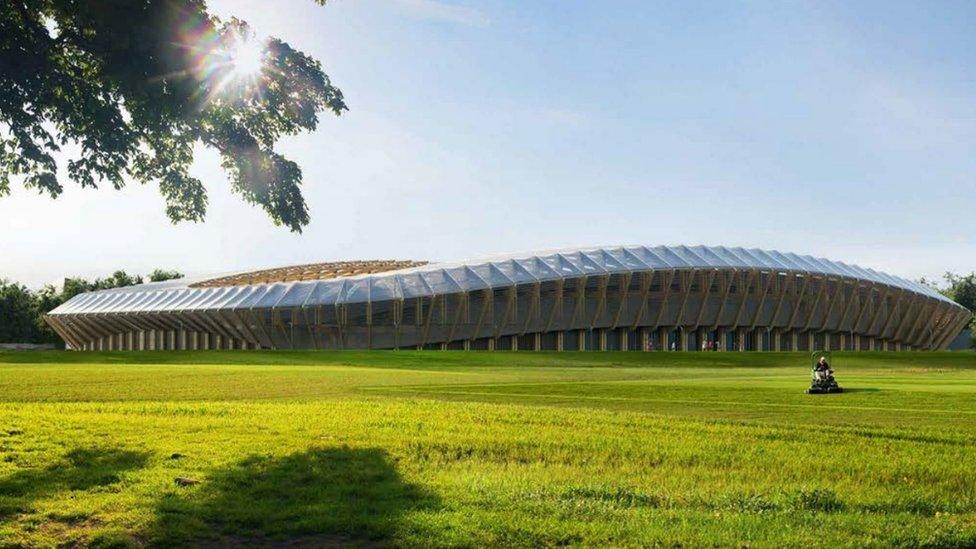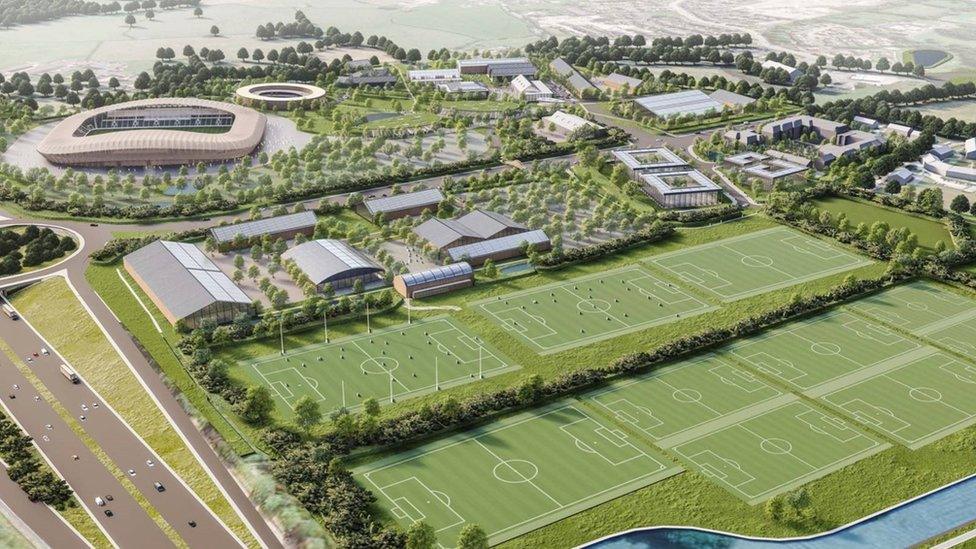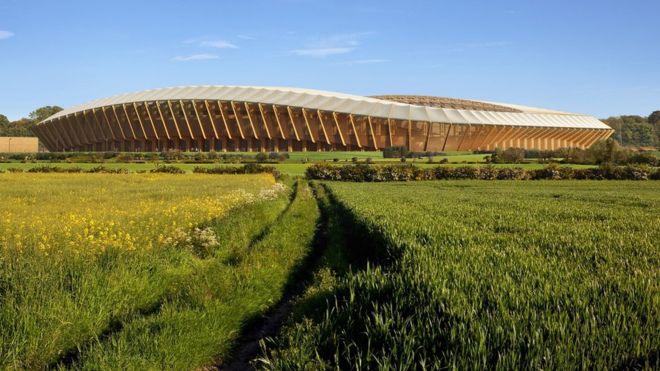Forest Green Rovers expects timber-stadium planning decision in October
- Published

Forest Green Rovers is in the fourth tier of English football
A football team's plan to build an environmentally friendly timber stadium has come closer to becoming a reality.
Forest Green Rovers was granted outline planning permission for a 5,000-seat ground near junction 13 of the M5 in December 2019.
The club has now submitted a planning application to Stroud District Council for the layout, scale and external appearance of the stadium.
District planners are expected to consider the scheme by 23 October.
The planning application was submitted by Ecotricity Group Limited which - like the football club - is owned by Dale Vince. It says that the intention is to retain the site's rural setting and make the ground a focal point for the community.
It has been designed for energy efficiency and includes features such as reusing rainwater.
Consultants say that all building materials will have the lowest possible environmental impact, with a timber frame - instead of a concrete or steel one - being another feature of this approach.
The application says that the stadium's "distinct architectural features" will produce a "soft-glowing lantern effect at night" to minimise the impact on wildlife, according to the Local Democracy Reporting Service.

The timber stadium would be built near junction 13 of the M5 if permission is granted
In June 2019, the district council rejected the original plans for the stadium amid concerns about noise, traffic and the impact on landscape - a view that was shared by Eastington Parish Council.
Forest Green Rovers then submitted a modified application that was approved in December 2019.
Stroud's Conservative MP, Siobhan Baillie, then called for an "independent assessment". But the government backed the decision to grant planning consent and decided not to "call-in" the application for further investigation.

Follow BBC West on Facebook, external, Twitter, external and Instagram, external. Send your story ideas to: bristol@bbc.co.uk , external
Related topics
- Published27 January 2022

- Published20 December 2019

- Published11 June 2019

- Published6 March 2020
